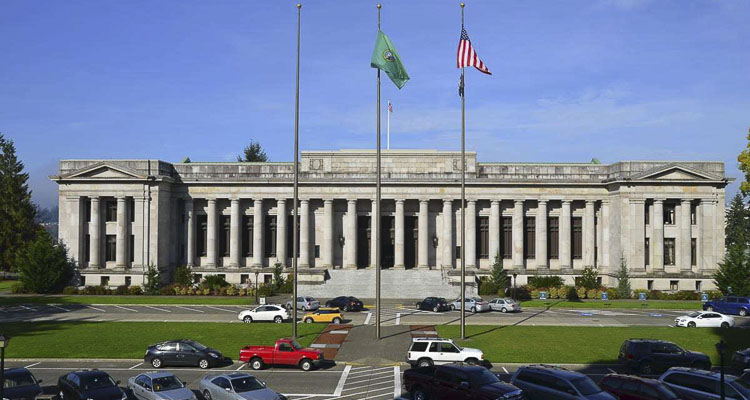
Jason Mercier of the Washington Policy Center shares why the actions by all levels of state government surrounding the efforts to impose a capital gains income tax does little to restore public confidence
Jason Mercier
Washington Policy Center
For months I’ve been asking the Department of Revenue (DOR) if it plans to collect the capital gains income tax that was ruled unconstitutional by an Inslee-appointed judge on March 1. The answer has consistently been: “That decision has not been made yet.”

Yesterday, however, the Attorney General (AG) helped definitively answer that question by filing a motion with the state Supreme Court asking the justices to allow DOR to collect the capital gains income tax before a final ruling on the case. In fact, the AG argues that those challenging the capital gains income tax “would be better off” if the Supreme Court allows DOR to collect the tax before it weighs in on the case.
From the AG’s motion asking for permission to collect capital gains income tax:
“Plaintiffs will not be able to meet their burden of proving beyond a reasonable doubt that the capital gains tax is unconstitutional. The trial court ruled in their favor based on the erroneous premise that the tax is a property tax subject to the limitations in article VII of Washington’s Constitution, but that conclusion was incorrect, and is at the very least debatable…It would be profoundly irresponsible for the Department to fail to prepare to collect the tax in April 2023 as directed by statute.”
This effort by the state to just now seek a stay motion is profoundly disappointing.
The state could have asked for a stay back in March when the Superior Court ruled that capital gains income tax “is declared unconstitutional and invalid and, therefore, is void and inoperable as a matter of law.” It chose not to.
The Department of Revenue could have been upfront from the beginning that it planned to collect the capital gains income tax before a final ruling by the state Supreme Court. Instead, DOR played coy and told taxpayers that its rule-making activities were merely to “provide guidance to the public regarding the tax as a courtesy. Any guidance provided herein will apply only if the tax is ruled constitutional and valid, in its entirety, by a court of final jurisdiction.” DOR filed the capital gains income tax rules on November 2.
Lawmakers could have acknowledged from the beginning that the IRS and every other state in the country unequivocally say that a capital gains tax is an income tax. Instead, they played word games although public records show that they wanted a lawsuit in the hopes the state Supreme Court would now by judicial fiat allow an income tax despite the voters rejecting six constitutional amendments.
Public trust is in short supply these days. The continued mind boggling actions by all levels of Washington state government surrounding the efforts to impose a capital gains income tax does little to restore public confidence that facts and process still matter in our state anymore.
Jason Mercier is the director of the Center for Government Reform at the Washington Policy Center.
Also read:
- Opinion: In-n-Out Burger is so much more than fast food for so many of usPaul Valencia shares why In-n-Out Burger means more than just fast food for countless fans as Ridgefield nears its grand opening and Vancouver’s location begins construction.
- Opinion: Washington’s June 2025 budget revisions – revenue up spending up moreMark Harmsworth of the Washington Policy Center critiques the state’s latest budget revisions, warning that new taxes—not organic growth—are driving revenue. He calls for fiscal restraint and long-term reform.
- Opinion: Pedestrian control signalsDoug Dahl explains Washington state law regarding crosswalks and pedestrian signals, offering safety insights and common misunderstandings about traffic control at intersection
- Letter: ‘How can five part-time legislators without research support or reliable access to information serve as an effective check on six full-time elected executives’Bob Zak expresses agreement with recent opinions on the Clark County Charter’s imbalance and endorses John Ley’s transit preference while questioning light rail costs and Council effectiveness.
- POLL: Should the Clark County Clerk remain an elected position?Following public opposition, Clark County Council dropped a proposal to make the clerk an appointed role. Readers can now weigh in through this week’s poll on whether the clerk should remain elected.











It will be a very short step from a capital gains tax on high income to an income tax on everyone. Inslee has never seen a tax he doesn’t like.
We just moved from California. He must be following Newsom’s footsteps. He could care less about the people also.
An example of a decision, by a judge who KNOWS law:
“Absent entry of this Temporary Restraining Order, Plaintiffs will be deprived of their right to bear arms pursuant to Or. Const. Art. l, Sec. 27 by being made unable to lawfully purchase a firearm or bear a magazine capable of holding more than 10 rounds of ammunition in the State of Oregon. Deprivation of fundamental constitutional rights for any period constitutes irreparable harm.”
The “AG” and “supreme court” of the State of Washington (a.k.a. WA.STed), cannot find its collective ass with all 20 hands and 10 heads.
[Hint to all of them: “RING AROUND THE COLLAR.”]